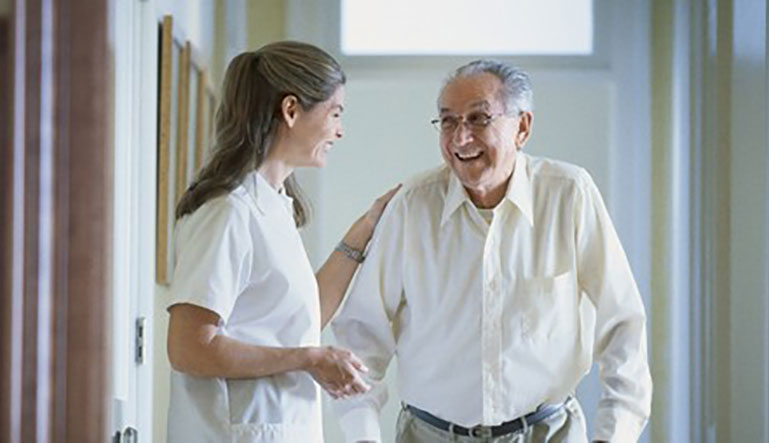It’s an unpleasant topic few adults want to discuss: colonoscopies. The very idea of the procedure is off-putting to many. While the prep is less unpleasant than it used to be, it’s still necessary to cleanse the colon. For many adults, the perceived loss of dignity associated with a colonoscopy is the primary reason for avoiding it.
This colon cancer screening is recommended for most adults between the ages of 50 and 75, but it’s estimated only 67% of people actually get one. That worries physicians since colon cancer is the fourth leading cause of death in this country. By having a colonoscopy every ten years (more frequently if recommended) you significantly reduce your odds of developing this deadly form of cancer.
But for older adults, there are legitimate concerns to consider. They include worries about undergoing sedation and the risk of a bowel perforation. Both can be dangerous for seniors. In fact, adults over the age of 65 are at 30% higher risk for perforation, which can be life-threatening.
Here’s what to know before scheduling a colonoscopy if you are over the age of 65.
The Facts about Colonoscopies and Seniors
- Age: The 2008 United States Preventive Services Task Force guidelines on colorectal cancer screenings discussed age. The task force recommends fecal occult blood testing, sigmoidoscopy, or colonoscopy for people between the ages of 50 and 75. After 76, however, they say adults should not undergo a colonoscopy unless there are special circumstances.
- Last screening: When deciding whether a senior should have a colonoscopy, a physician will also look at the date and results of their last colonoscopy. Because colon cancer is usually slow-growing, an older adult might not need another one. The decision should be made on a case-by-case basis.
- Alternatives: While physicians consider a colonoscopy the gold standard in colon cancer screening, it isn’t the only option. Discuss alternatives with your doctor, including a sigmoidoscopy or a fecal occult blood test. A newer, non-invasive screening gaining the trust of physicians is Cologuard. Research shows it to be effective at detecting colon cancer, even in early stages.
- Overall health: When a physician is deciding whether a senior patient needs a colonoscopy, they will also look at the older adult’s overall wellness. A healthy, active senior may be a good candidate for a colonoscopy, while an adult with chronic health conditions might be better off getting a fecal occult blood test or another screening.
Finally, it’s essential to find a qualified physician to perform a colonoscopy for a senior. A trained endoscopist is usually best. The American Society for Gastrointestinal Endoscopy recommends asking physicians you are considering these ten questions.
Subscribe to the Five Star Newsletter
If you try to stay abreast of the latest research and news on senior living, aging, and caregiving, we have a resource you won’t want to miss. You can subscribe to our free publication, the Five Star Newsletter. We’ll deliver a copy to your inbox once or twice each month. Enter your email address in the green box at the bottom of this page to get started!

